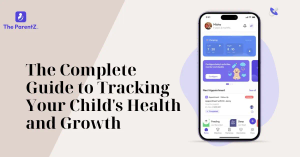If your child has been coughing nonstop since Diwali, you're not alone. This year, Delhi-NCR has seen air pollution levels shoot up to 488 micrograms per cubic metre, which is the highest in five years. That's more than three times what it was before the festival. And our kids are paying the price.
A recent survey found that 42% of households in Delhi-NCR are dealing with sore throats and coughs. Another 17% reported breathing difficulties. If you've noticed your kids coughing more, having trouble sleeping, or complaining about a scratchy throat, the toxic air is likely the culprit.
Why Are Kids Coughing More After Diwali?
The air right now is filled with tiny particles called PM 2.5. These are so small that they can go deep into your child's lungs and cause irritation. Kids breathe faster than adults, which means they're inhaling more of these pollutants. Their airways are also smaller and more sensitive, making them more vulnerable to air pollution.
The cough is your child's body trying to get rid of these irritants. It's a defense mechanism, but it can be exhausting for both you and your child.
What You Can Do Right Now
Keep Them Indoors During Peak Pollution Hours
Morning and evening are when pollution levels are highest. Try to keep your kids inside during these times, especially between 6-10 AM and 6-10 PM. If they need to go out for school, make sure they wear a well-fitted N95 or N99 mask.
Use an Air Purifier
If you have one, run it in the room where your child spends most time. Keep windows and doors closed when the AQI is above 200. If you don't have a purifier, even keeping windows shut helps reduce indoor pollution.
Steam Inhalation
For kids above 5 years, steam inhalation can help loosen mucus and soothe irritated airways. Fill a bowl with hot water, add a few drops of eucalyptus oil (optional), and let your child breathe in the steam for 5-10 minutes. Stay with them to avoid accidents. For younger kids, run a hot shower and sit with them in the steamy bathroom for 10 minutes.
Honey for Cough Relief
For children above 1 year, honey is a natural cough suppressant. Give half a teaspoon to kids aged 1-5 years, and one teaspoon for kids above 6 years, 2-3 times a day. You can mix it with warm water or give it plain. Never give honey to babies under 1 year – it can cause serious illness.
Keep Them Hydrated
Water helps thin the mucus and keeps the throat moist. Give your child plenty of fluids – warm water, soups, or dal water work great. For younger kids, continue breastfeeding or formula feeding as usual.
Saline Nasal Drops
Pollution irritates the nose too. Saline drops (available at any pharmacy) can help clear nasal passages. Use 2-3 drops in each nostril, 3-4 times a day. This is safe for all ages, even infants.
Immunity-Boosting Foods
Include citrus fruits, amla, turmeric milk (for kids above 1 year), and warm soups in their diet. These help strengthen their immune system naturally.
When to See a Doctor
Don't wait if your child has:
- Difficulty breathing or rapid breathing
- Chest pain or tightness
- Cough lasting more than a week
- Fever above 100°F
- Wheezing sounds when breathing
- Lips or face turning blue
- Refusal to eat or drink
For children with asthma, follow their action plan strictly and keep rescue inhalers handy. This pollution can trigger severe attacks.
What NOT to Do
Don't give over-the-counter cough syrups without consulting a doctor, especially for kids under 6 years. Many contain ingredients that aren't safe for young children. Avoid self-medicating with antibiotics – most pollution-related coughs are not bacterial infections.
Conclusion
Right now, 44% of families are trying to minimize outdoor exposure and boost immunity through diet. That's smart. But we also need to push for better air quality measures in our cities. Use air quality apps to check the AQI before planning outdoor activities.
This phase will pass, but until then, protect your kids as best as you can. Their lungs are still developing, and clean air should be their right, not a luxury. Take care, stay indoors when possible, and don't hesitate to reach out to your pediatrician if the cough persists.





Be the first one to comment on this story.